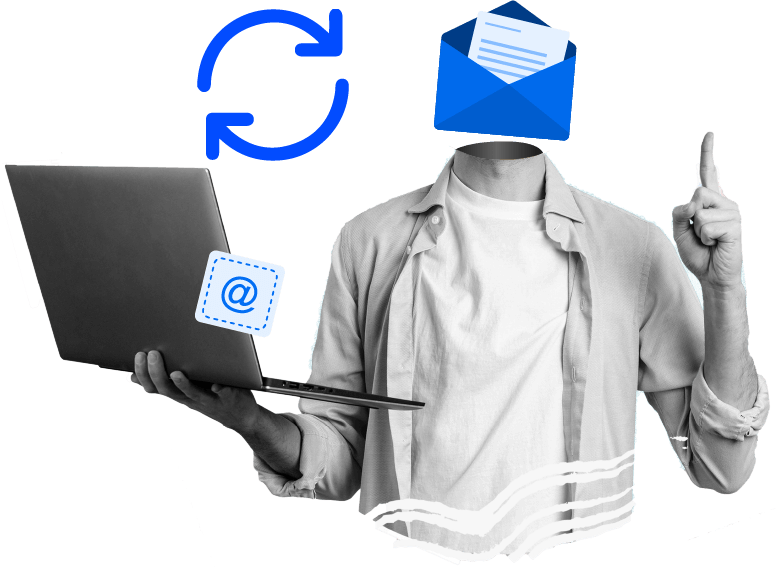1. What is Managing?

Managing is a directive and authoritative leadership style. It essentially involves supervision and execution of tasks and processes that are required for projects or teams. Those who perform these duties are called managers. Managers focus on specific metrics and key parameters to ensure that tasks are being completed in stipulated time frames. Managing also involves tracking progress and taking necessary steps to resolve any issues that arise. This one-way process usually proves advantageous when there are specific goals, multiple teams to handle, or a variety of queries that need special attention.
Some key areas or situations that managers cover may include:
- Resolution of conflicts for consistent operations
- Induction and training of new team members
- Assigning and delegating projects or tasks
- Ensuring project deadlines are met as per schedule
- Arranging meetings as necessary for teams or leads
- Evaluating progress of teams, plans and schedules
- Taking important decisions at the right time to ensure smooth functioning
2. What is Coaching?

Coaching on the other hand is a holistic two-way process that’s more employee-centric as opposed to work-centric in management processes. A coach helps an employee to maximize his or her potential and enhance the quality of their work, improve productivity, and engagement.
Some key areas or situations that managers cover are:
- Provision of counseling through 1-on-1 sessions.
- Developing new strategies through effective collaboration to improve on work.
- Mentoring and guiding team members to help them progress at set intervals of time.
- Tracking individual progress to create competent professionals who can further their career aspirations.
- Teaching soft skills that will help employees work more efficiently.
2.1 Significance of Coaching vs. Managing Roles
When it comes to taking a call on the importance of coaching vs. managing, how does one decide which of the two roles should take preference when trying to create a perfect balance for organizational management success ? Let’s take an analogy to understand this better. When you focus on boosting your overall health, one should take a 360-degree approach that includes both the body and mind as they are interrelated and codependent. Similarly, when a company looks at holistically enhancing the quality of their workforce, boosting productivity and ensuring growth, coaching and managing should meet halfway.
While a manager tells you what needs to be done, a coach guides you on how it can be done. So even if coaching vs. managing styles are clearly different, both these leadership styles have significant impact on how employees function and how that in turn can influence the overall achievement of set business goals.
3. What is the Difference Between Managing and Coaching?
3.1 Hierarchy Structure
Managing is typically a formal line and a manager’s role forms part of a hierarchical structure in any organization while coaching is more informal and a coach’s role can be appointed between peers, seniors in the company or even to a third-party as a vendor or contractor.
Managing is a more short-time based, goal-oriented process that involves evaluating performance, setting goals, minimizing inefficiencies and ensuring tasks are completed on time. Coaching is a more long-term, growth-oriented process that takes a holistic approach to mentoring, nurturing and developing an employee’s potential.
3.2 Leadership Style
Managing is a less communicative leadership style. A manager has more directive tasks and has to focus on operational aspects and their execution rather than communication. Coaching is a more communication-intensive leadership style that involves open-ended dialogs with employees to explore new ways of developing their skills and talents.
3.3 Work Approach
Managing focusses on effective delegation of tasks. A manager is usually involved in breaking down broader goals into smaller achievable tasks that can be delegated across teams. Coaching focuses more on collaboration with respective individuals to set goals, support their journey, and help in goal-attainment and personal growth.
3.4 Feedback Implementation
Managing processes provide feedback using a top-to-down model with minimal scope for communication on the same and no participation expected from the recipient. These are linked to payscale hikes, appraisals, promotional evaluations and more. Coaching usually involves giving and receiving feedback, and encouraging employees to voice their concerns so both the coach and the employee can work on them together to improve their skills and talents.
3.5 Decision-Making
Managing facilitates decision-making. As part of management, a manager has to make important decisions that are aimed at overall project or team goals while coaching contributes to long-term development of employees. A coach helps in empowering resources to make their own decisions that will help them for their personal growth and sustained career development.
4. Coaching vs. Managing Examples

Coaching examples may include:
4.1 PIP Program
Performance improvement plan (PIP) programs are introduced for employees who need to be guided in reducing their performance deficiencies in a stipulated time frame using training tools and mentorship. Coaches or mentors can evaluate performance of the concerned individuals, create strategies and help in bridging gaps by enhancing time-management skills, quality of work and improving productivity.
4.2 Shadowing a New Joinee
Coaches can be instrumental in creating a positive experience for new joinees. By ‘shadowing’ them over a certain period, they can help in smooth on-boarding, assisting them in familiarizing themselves with company policies, work patterns, and more.
4.3 Training in New Software
Technological advancements often involve adapting to new software in the interest of company growth. Coaches can help in training those employees who are on a slower learning curve or need a little more hand-holding.
4.4 Developing Positivity
Demanding schedules, tight deadlines and more can significantly hamper an employee’s productivity and increase stress levels. Coaches can help employees tap into their Zen zones by conducting short sessions on meditations, mental health workshops, focused breathing techniques and more.
4.5 Soft Skills Training
Coaches can help in providing training workshops to help improve or develop an employee’s soft skills. Soft skills are essential in maintaining healthy and productive relationships in the workplace.
Managing examples may include:
4.6 Project Planning
A manager or senior who’s managing the team will be entrusted to create comprehensive project plans that can be followed easily and measured. They are accountable in ensuring end-to-end task creation, delegation of work and monitoring project progress.
4.7 Metrics and KPIs
When it comes to ensuring that set goals are being met, managers are accountable for setting applicable performance evaluating metrics and employee KRAs and KPIs to ensure they are able to meet those goals.
4.8 Team-Building Activities
Managers proactively foster collaboration and team spirit through a range of team-building activities such as online contests, Fun Friday sessions, and more. These are typically part of employee engagement programs to indirectly create impact on productivity levels.
4.9 Conducting Meetings or Feedback Sessions
Another example of managing at the workplace is initiating meetings or feedback sessions as necessary. Managers take the call on the agenda, time and goals to be discussed in meetings. Feedback sessions are conducted by managers to offer performance related reviews for employees.
5. FAQs
5.1. What is coaching approach vs management approach?
A coaching approach focuses on guiding and developing individuals, emphasizing collaboration and personal growth, while a management approach typically involves directing tasks, making decisions, and overseeing performance within defined guidelines or structures. Coaching aims for empowerment and skill enhancement, while management leans toward supervision and task-oriented directives.
 Interested in Virtual Team Building Events?
Interested in Virtual Team Building Events?





















